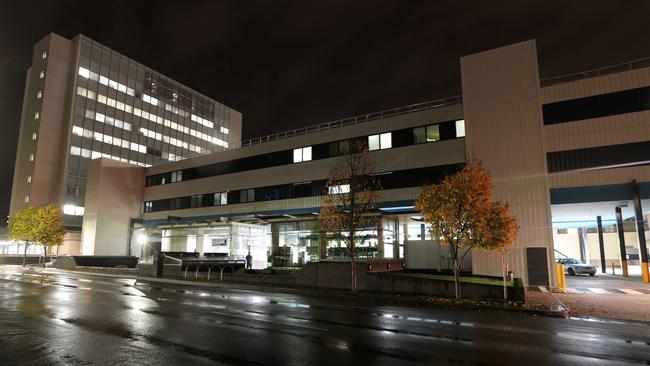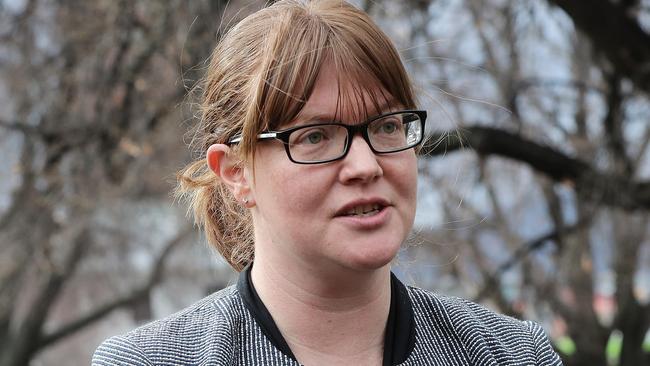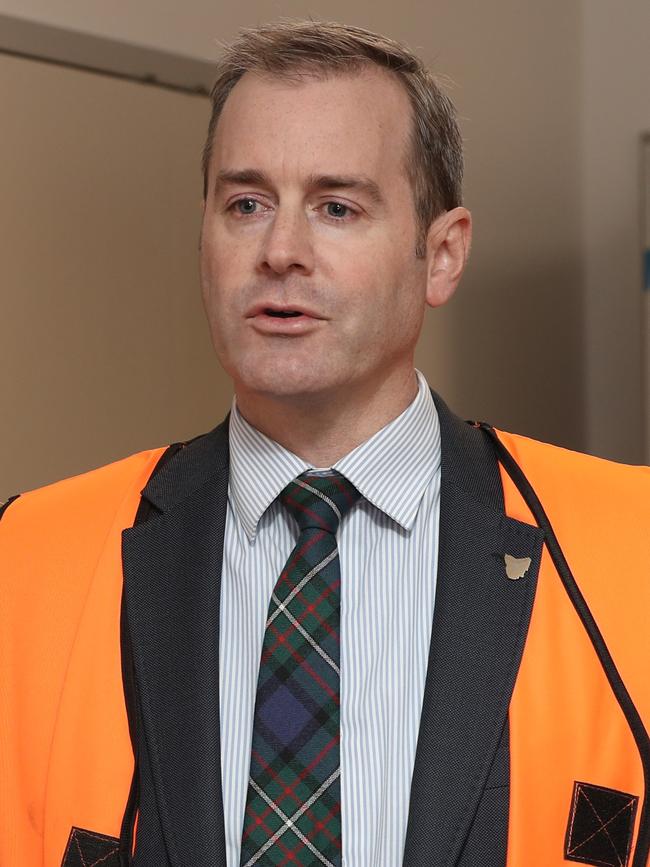Health system under pressure after code black
THE latest terrifying “code black” incident at the Royal Hobart Hospital is a symptom of an overburdened health system in a state of crisis, Labor says.

Tasmania
Don't miss out on the headlines from Tasmania. Followed categories will be added to My News.
THE latest terrifying “code black” incident at the Royal Hobart Hospital is a symptom of an overburdened health system in a state of crisis, Labor says.
Health spokeswoman Sarah Lovell said she had been contacted by hospital staff who said a mental health patient was stuck in the intensive care unit for three days while waiting for a bed in the hospital’s psychiatric unit.
The frustrated patient broke a plate and used a shard of the broken crockery to threaten hospital staff.
Hospital security were unable to contain the patient and police had to be called to restore order.
“This is the sort of thing clinicians have been warning of,” Ms Lovell said.
“It’s not safe for staff. It’s not safe for other patients in the hospital, but it’s not fair on those patients who are presenting to hospital seeking treatment and seeking support and being put in a position where their behaviour is escalating because they’re not getting the support they need.
“Conditions are deteriorating and it’s leading to situations like this where police are being called.
“What’s most concerning out of this is that the minister is simply not listening he’s not listening to the people on the frontline who understand what the issues are.”

A Tasmanian Health Service spokesman said it was “not appropriate to publicly discuss an individual patient”.
“At all times, the THS aims to ensure that all patients receive the care they need. From time to time, incidents do occur where a staff member is threatened and/or assaulted, and in these situations a Code Black is called,” he said.
“Should further assistance be required, Tasmania Police are able to assist, just as they are able to assist any member of the public.”
Ms Lovell said staff were terrified of repercussions from speaking out about incidents and were restricted from speaking out by the State Service Act.
Tasmania was the only state to reduce the number of mental health beds – from 103 in 2008-09 to 95 in 2015-16 – according to Australian Institute of Health and Welfare figures.
Ms Lovell said even after the hospital redevelopment, there would still not be enough mental health beds.

“Doctors have been warning the Minister about that for many months,” she said.
“Their concern is that if he goes ahead with this plan he will be locked into a situation where we still don’t have enough mental beds and it would be much more expensive and much harder to fix that down the track.”
Health Minister Michael Mr Ferguson said he was confident he had the support of staff.
“I really enjoy having the strong support of our stakeholders and the Tasmanian community reflected in the recent election … and the Hodgman Liberal government’s policies and personnel in this area, I think it’s been demonstrated, and we thank the Tasmanian public for their support,” he said.
“We’ve got a $757 million plan to improve health. I know that Labour are very embarrassed and upset that their health policy was a dog’s breakfast and was rejected by the voters.
“What matters is not the politics, what matters is that we crack on and deliver the policy that the government committed to.”

Australian Nurses and Midwifery Federation branch president Emily Shepherd said the incident in the ICU highlighted the dangers staff faced every day because the health system was struggling to cope with demand.
“It’s a real concern for the safety of staff in the ICU and for other patients,” she said.
“Unfortunately having a mental health patient not being moved out of the Intensive Care Unit is a symptom of not having enough mental health beds.
“There’s always a risk of adverse outcomes when patients are in an inappropriate environment for their diagnosis.
“These are the sorts of incidents that occur fairly regular for our members and it’s one of the reasons we’re seeking in our enterprise bargaining, practical strategies which will improve the safety of staff when they’re caring for patients.”


